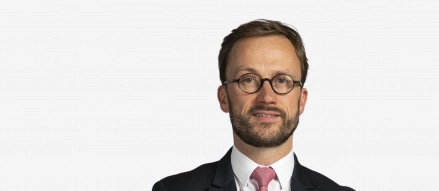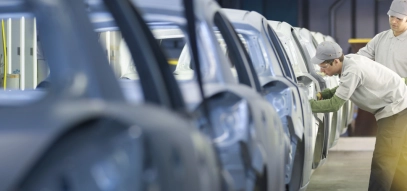This conversation has been edited and condensed for clarity.
Grégory Derouet, Mazars: Over the last decade, city dwellers have seen new transport options pop up everywhere they turn - from bike sharing services, to scannable scooters and cars that can be rented by the hour. With the rise of these services, we are seeing a shift in the automotive industry as it evolves from a ‘manufacturing mindset’ to a ‘mobility as a service’ (Maas) mindset.
Environmentally conscious consumers are starting to question the environmental impact of ownership and whether that model truly suits their needs. In response, new opportunities that follow usage-based models are on the rise as the industry move towards sustainable vehicles and networks.
Is it fair to say these changes are revolutionising the automotive market, and what challenges do you expect to arise in the coming years?
Veruschka Becquart, CaoCao Mobility Paris: I think we need to look at this in an even broader sense. As climate becomes an increasing concern and the number of people in cities continues to rise, urban centres must reinvent themselves, including the ways people can move. We are already seeing both public and private sector innovation with the introduction of scooter, bike and car sharing services in cities around the world.
The challenges of tomorrow are in the mobility sector - and it isn’t just about cars. Manufacturers are expanding their range of services – while they continue to talk about mobility, they are moving away from the business to consumer sector as consumer habits have evolved. The pandemic only intensified this shift. These habits of consumption are more than just a phase, they are here to last because they are pushed by global issues.
The challenge is for each player to find their place in a rapidly changing market. And of course, when people talk about big innovation like autonomous cars, we also have to think about how to regulate vehicles and usage to avoid any potential conflicts.
Tailoring Maas to regional demands, capabilities and regulations
Grégory Derouet: Automotive players are no strangers to regulation and are used to adapting safety standards as new technology evolves and potential safety hazards emerge. Recently, environmental standards are the biggest drivers of change that inspire regulatory rules, but there are significant regional discrepancies. And among the most game-changing policies are announcements from already more than 20 countries to phase-out internal combustion engine cars over the next decades. At the same time, we are seeing fiscal incentives in several EU countries, notably in Germany, France, and Italy, but also elsewhere, which are a major driver for electric vehicle (EV) sales.
We can’t talk about Maas without discussing VTC, véhicule de transport avec chauffeur in French. The hiring of transportation via private chauffeurs is on the rise as more people swap their personal cars for services that they can request at the click of a button. In your experience working with VTCs at CaoCao, how have local factors shaped your business model?
Veruschka Becquart: At CaoCao Mobility Paris, our business strategy is centred around local needs and demands. We chose Paris because it is an economic hub and, in my view, a mobility laboratory that enables us to develop a solid base to test methods before offering services across the continent. As you mention EVs, there is a strong consumer demand for environmentally-friendly transportation in Europe and that fits well with the three core values we have established: environment, quality, and safety, which all fit under the umbrella of responsibility: our responsibility to our drivers, passengers and the environmental impact.
Another reason we chose Paris – putting Covid-19 aside - is that it remains the world’s number one destination for tourists. We are ‘the new kids on the block’ when it comes to VTC here, but one thing that sets us apart from other companies is our vehicles, which are hybrid electric cars with a unique design, manufactured by LEVC, which is owned by Geely: our main investor and the third largest Chinese car manufacturer.
As you may know, we are originally a Chinese company and operate in 62 cities across the country, with more than 60 million users to date, including 1 million daily users. As you mentioned, the EV market is enormous in China and CaoCao operates with a 97% electric fleet there.
Prices that rival competitors
Grégory Derouet: It’s clear that with all the changes in mobility, there is a particular focus on the environment – we want to be greener and safer, but this is all happening quite fast. It’s a capital-intensive industry and there is a high cost for development and a need for high investment in a lot of different technologies. In an ever-evolving industry, getting the timing right can be tricky and it’s not always easy to reconcile the price with consumer expectations for renewable, agile technology that has a minimal industrial footprint. What steps lead you to the right price point and what are the challenges for price competitiveness?
Veruschka Becquart: There’s no doubt that the last five years have seen a price war on VTC services, which has been exacerbated by a difficult recent economic period. But before price, the most important aspect to consider is what sets apart your service from competitors. In our case, it’s quality service that respects the environment.
Ethics are essential to a sustainable business model. It’s crucial that drivers are paid well – otherwise, they will favour competitor apps that can offer better renumeration or align better with their values. Without loyal drivers, we wouldn’t be able to offer the level of service that our customers demand. That is precisely why we started offering full-time contracts to drivers who prefer independent contracts. At Caocao, the drivers have a choice to become an independent contractor with their own environmentally friendly car or with CaoCao’s TX vehicle. In addition, they can also choose to be employees of one of our subsidiaries using a TX.
As customers look for more transparency from the business they support, we are setting up a precise method of calculating our carbon footprint, which will be included in our 2021 loyalty programme. All these factors are brought together to attract a customer that shares our values and is willing to pay a justified cost for quality service.
Building the right infrastructure for sustainable mobility
Grégory Derouet: Smart traffic lights, hydrogen buses and data-driven cycle routes are just three examples of how cities are finding ways to be greener places to live and move. With 10% of total greenhouse gas emissions coming from 100 of the world’s biggest cities, urban centres have to take sustainability seriously. Thankfully we’re seeing progress on mobility infrastructure. Public transit systems that run on greener fuel in Austria and cable cars that reduce pollution in South America spring to mind. From your standpoint, how is urban infrastructure being updated to support EV drivers in particular?
Veruschka Becquart: When you operate with electric vehicles (EVs), infrastructure is essential. I think in time the sustainable mobility model will be applicable to a mass market because there is a strong demand for it, but success will require all stakeholders in the public and private sector to come together and build a mobility model that works for everyone. For EVs, this means developing the right infrastructure to offer maintenance and charging services. The main fear of an EV driver is running out of electricity, which is why we have opted for hybrid models in certain places. In Paris and other large cities, electric vehicles are the priority. But in the countryside and in smaller towns, charging points are individually owned and not available for public use. The challenge for many countries will be to develop infrastructure nationwide to ensure EV drivers will be able to find a charging point for their vehicle without issue.
I predict that two main events set to take place in Paris will speed up mobility services: The Rugby World Cup in 2023 and the Olympic Games in 2024. Now is the time for private players to enter consultation and work with the city to create mobility services that are sustainable and best serve the inhabitants and tourists alike. During a time when there is a strong need and interest for investment, we have a unique opportunity to build sustainable infrastructure that will stand the test of time in an evolving industry.
This article is part of our 'Reinventing the wheel: driving conversations' series. You can read more conversations here.









